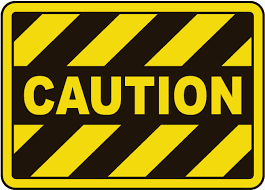Some Good Advice Before
You buy a new Golf Cart

Spring 2026 Update:
Prior to 2020, the majority of New Golf Carts sold in the U.S. market were manufactured by Star EV, Yamaha, EZ-GO, and Club Car. In the past 5 years, at least 50 new Chinese brands are now being sold in America, creating a huge supply overage and a decrease in prices of these brands as suppliers panic to dump inventory.
Following this surge in Chinese golf cart imports and the emergence of various new brands and products within the U.S. market, the U.S. government began investigating potential trade violations in 2024.
In January 2025, the U.S. Department of Commerce revealed preliminary tariffs on Low Speed Personal Transportation Vehicles (LSPTVs) from China, ranging from 128% to 478%. These duties are in addition to countervailing tariffs announced in November 2024, which range from 22% to 515%.
These measures target companies that have been found to sell goods at unfairly low prices or receive improper government subsidies, both of which violate World Trade Organization agreements and have a detrimental impact on the U.S. market and local industries.
In July of 2025, the U.S. International Trade Commission announced a major decision to level the playing field for American golf car manufacturers. The Commission found that unfair trade practices by Chinese importers have harmed U.S. producers, and as a result, significant duties - some exceeding 300% - will now be imposed on certain imported Chinese-built vehicles. These measures, including retroactive penalties, aim to create a fairer, more competitive market.
Potential Outcomes:
The preliminary ruling from the U.S. government is a major turning point. As a result, many of these Chinese imports will become significantly more expensive to bring into the U.S. market. This is likely to lead to much higher prices for these affected brands and their replacement parts. It is highly likely that some or all of these brands may withdraw from the market or cease operations entirely.
For those that do somehow remain in business, it will most certainly become increasingly difficult for dealers to obtain parts or fulfill warranty commitments.
Summary:
Prior to 2020, the majority of New Golf Carts sold in the U.S. market were manufactured by Star EV, Yamaha, EZ-GO, and Club Car. In the past 5 years, at least 50 new Chinese brands are now being sold in America, creating a huge supply overage and a decrease in prices of these brands as suppliers panic to dump inventory.
Following this surge in Chinese golf cart imports and the emergence of various new brands and products within the U.S. market, the U.S. government began investigating potential trade violations in 2024.
In January 2025, the U.S. Department of Commerce revealed preliminary tariffs on Low Speed Personal Transportation Vehicles (LSPTVs) from China, ranging from 128% to 478%. These duties are in addition to countervailing tariffs announced in November 2024, which range from 22% to 515%.
These measures target companies that have been found to sell goods at unfairly low prices or receive improper government subsidies, both of which violate World Trade Organization agreements and have a detrimental impact on the U.S. market and local industries.
In July of 2025, the U.S. International Trade Commission announced a major decision to level the playing field for American golf car manufacturers. The Commission found that unfair trade practices by Chinese importers have harmed U.S. producers, and as a result, significant duties - some exceeding 300% - will now be imposed on certain imported Chinese-built vehicles. These measures, including retroactive penalties, aim to create a fairer, more competitive market.
Potential Outcomes:
The preliminary ruling from the U.S. government is a major turning point. As a result, many of these Chinese imports will become significantly more expensive to bring into the U.S. market. This is likely to lead to much higher prices for these affected brands and their replacement parts. It is highly likely that some or all of these brands may withdraw from the market or cease operations entirely.
For those that do somehow remain in business, it will most certainly become increasingly difficult for dealers to obtain parts or fulfill warranty commitments.
Summary:

